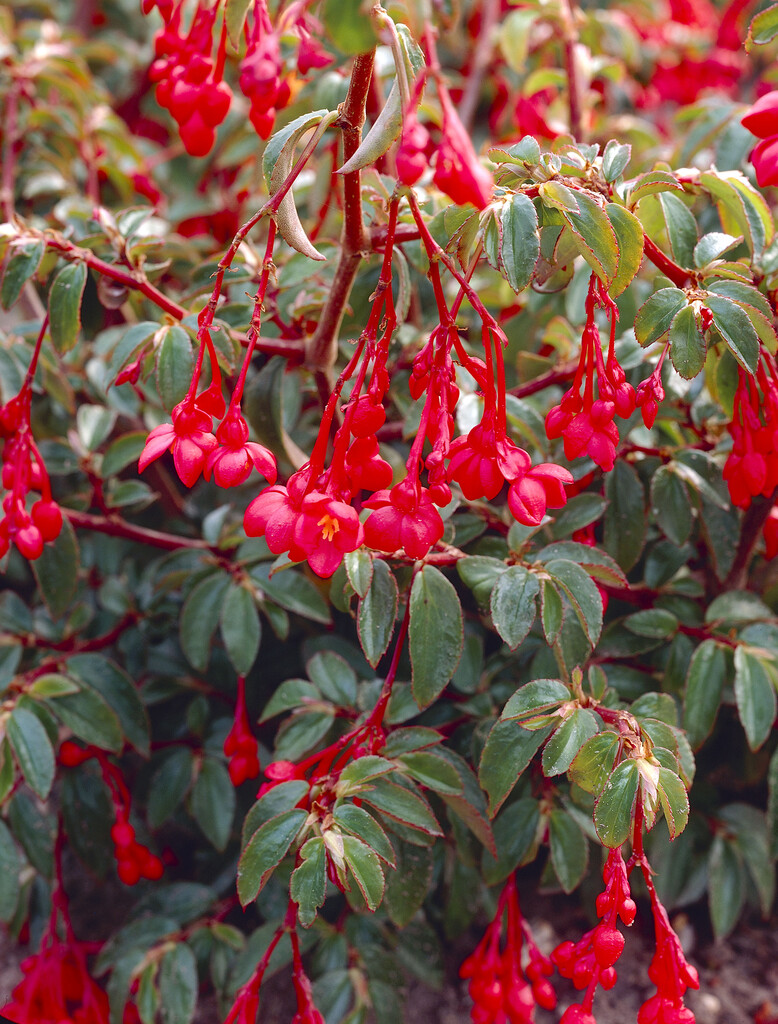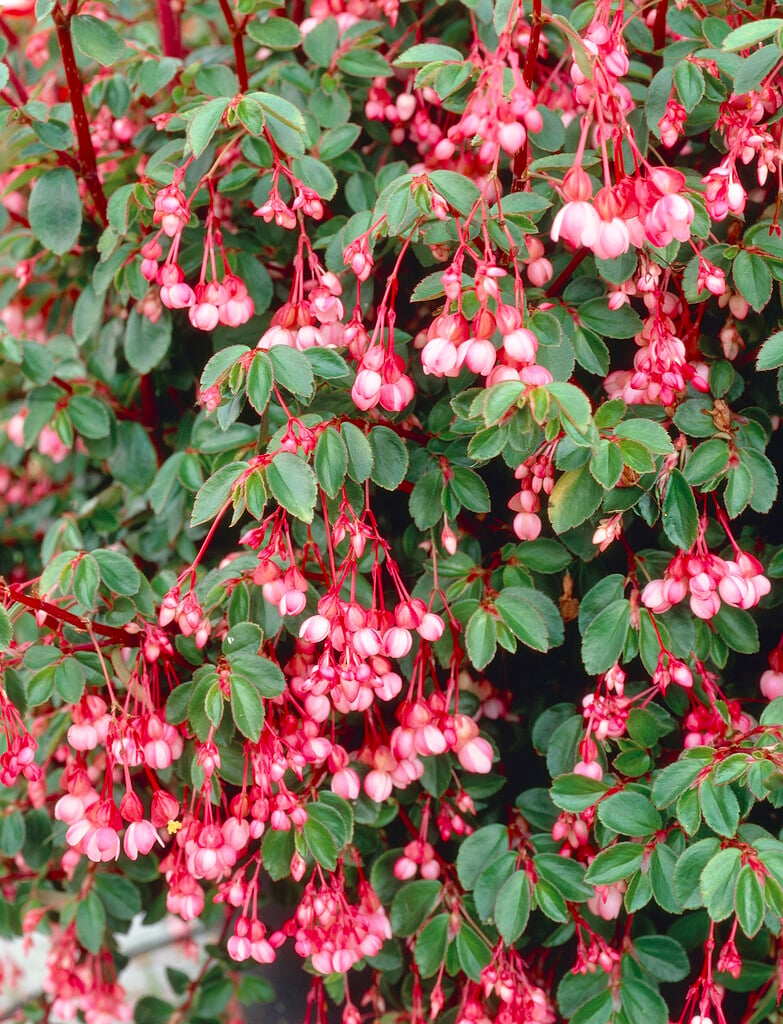Begonia fuchsioides
fuchsia begonia
A bushy branching perennial to 60cm with small, rich glossy green leaves and pendulous, fuchsia-like pink or red flowers 3cm across
Other common names
corazon-de-jesusSize
Ultimate height
0.5–1 metresTime to ultimate height
5–10 yearsUltimate spread
0.1–0.5 metresGrowing conditions
Moisture
Well–drainedpH
Acid, NeutralColour & scent
| Stem | Flower | Foliage | Fruit | |
| Spring | Green | |||
|---|---|---|---|---|
| Summer | Green | |||
| Autumn | Green | |||
| Winter | Pink Red | Green |
Position
- Partial shade
Aspect
South–facing or West–facing or East–facing
Exposure
Sheltered Hardiness
H1BBotanical details
- Family
- Begoniaceae
- Native to GB / Ireland
- No
- Foliage
- Evergreen
- Habit
- Bushy
- Potentially harmful
- Ornamental bulbs - not to be eaten. Wear gloves and other protective equipment when handling. Pets: Ornamental bulbs - not to be eaten - see the HTA guide to potentially harmful plants for further information and useful contact numbers
- Genus
Begonia can be annuals, evergreen or deciduous perennials or shrubs, with fibrous, tuberous or rhizomatous roots and usually asymmetrical leaves, often strikingly patterned, and small or large flowers, both male and female in the same cluster
- Name status
Correct
- Plant range
- Venezuela
How to grow
Cultivation
Grow outdoors in well-drained humus-rich, neutral to acidic soil. Grow in good but not direct light in a frost-free area. Under glass grow in well drained, peat-free compost. Will not tolerate water logging. See Begonias: outdoors for further advice.
Propagation
Propagate by seed, stem tip or leaf cuttings
Suggested planting locations and garden types
- Patio and container plants
- Mediterranean climate plants
- Cottage and informal garden
Pruning
No pruning required
Pests
May be susceptible to caterpillars, mealy bugs, mites, glasshouse thrips, vine weevil and aphids
Diseases
May be susceptible to grey moulds, powdery mildews, stem rot and rhizome rot
Love gardening
Sign up to receive regular gardening tips, inspiration, offers and more
View our Privacy Policy
Get involved
The Royal Horticultural Society is the UK’s leading gardening charity. We aim to enrich everyone’s life through plants, and make the UK a greener and more beautiful place.

